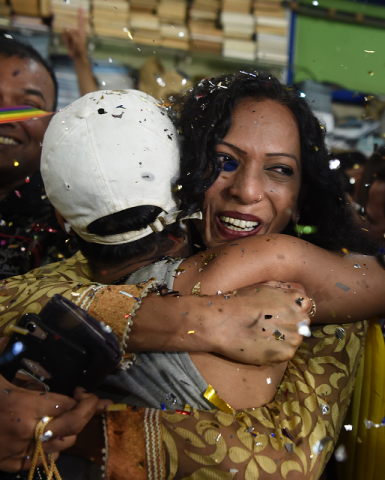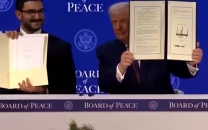India Supreme Court decriminalises homosexuality
Five-judge panel unanimous in its decision to end law commonly known as Section 377

Indian members and supporters of the LGBT community celebrate the Supreme Court decision to strike down a colonial-era ban on gay sex. PHOTO: AFP
A five-judge panel in India’s Supreme Court was unanimous in its decision to end the law commonly known as “Section 377”, that prohibits “carnal intercourse against the order of nature with any man, woman or animal” --which is widely interpreted to refer to gay sex.
"Any consensual sexual relationship between two consenting adults--homosexuals, heterosexuals or lesbians - cannot be said to be unconstitutional," said the Chief Justice of India, Dipak Misra, as he read out the judgement.
India's top court reviews homosexuality ban
Activists welcomed the ruling.
The court had previously reinstated the ban in 2013 after four years of decriminalisation. Gay sex was punishable by up to 10 years in jail.
"Thanks to all that fought for this, braving the worst sort of prejudice. This is a good day for human rights," Meenakshi Ganguly, South Asia director for Human Rights Watch said on Twitter.
"It is not only about decriminalising but recognising our fundamental rights," Akhilesh Godi, one of the petitioners in the case, told Reuters shortly before the judgement was announced.
The judges in the case had previously said that gay people in India faced deep-rooted trauma and live in fear.
Gay sex is considered taboo by many in socially conservative India, and despite opposition to lifting the ban from some lawmakers, activists had hoped the ban would be lifted.



















COMMENTS
Comments are moderated and generally will be posted if they are on-topic and not abusive.
For more information, please see our Comments FAQ